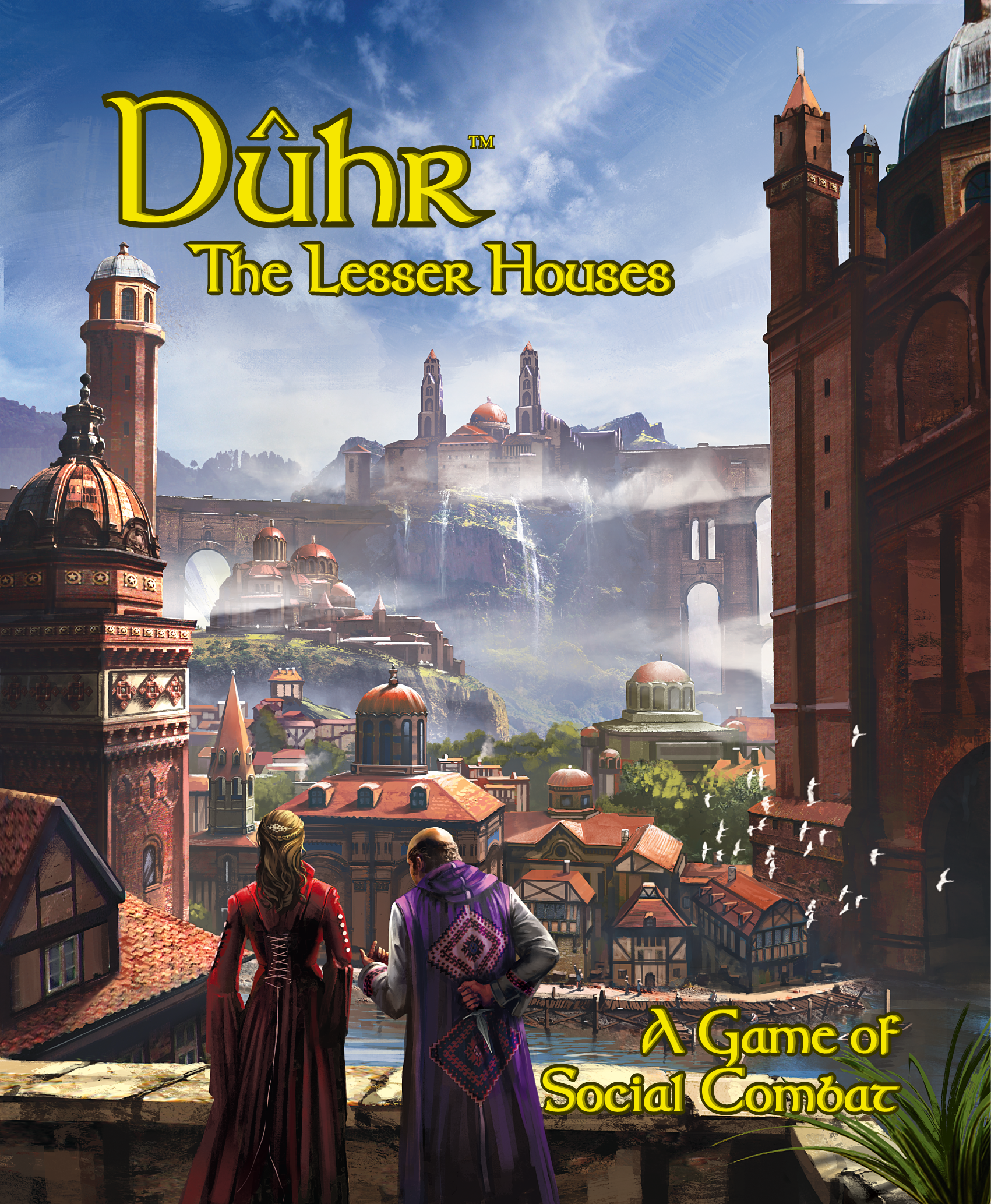Dȗhr: The Lesser Houses
Products title that includes 'PRE-ORDER' is subject to our Pre-order Policy
Couldn't load pickup availability
Delivery and Shipping
Delivery and Shipping
For more details, please refer to our Shipping and Order Information.
Pre-Order Policy
- Pre-order items are charged at the time the order is placed.
- Prices for pre-order items are subject to change based on final landed costs.
- If the final price is lower, the difference will be refunded to the customer in the form of store credit.
- If the final price is higher, customers will be given the option to either:
- Pay the difference, or
- Cancel the item for a full refund.
- Orders containing pre-order items will be placed on hold until all items in the order are available.
- Once all items have arrived and pricing remains unchanged, the order will be automatically shipped.
- Pre-orders are fulfilled on a first-come, first-served basis.
- If a pre-ordered item becomes unavailable (e.g., the publisher cancels the product), a full refund will be issued.
- Pre-orders may be cancelled and refunded by customers or the store.
- For transactions that are no longer eligible for direct refunds due to payment processor limitations, a store credit will be issued instead.
Description
Description
| Designer | Jim Felli |
| Publisher | Devious Weasel Games |
| Players | 4-6 |
| Playtime | 30 mins |
| Suggested Age | 14 and up |
The monolithic city-state of Dûhr is at once a crucible of emerging and forgotten cultures, a cynosure of commerce, and a titan of military might. Its Great and Lesser Houses rise and fall with the whims of its Family Royal, the Sovereign House Kythidûhr. Amidst the festivals of summer, House Kythidûhr announced its intent to elevate one of Dûhr’s Lesser Houses to Great House status. By autumn’s frosts, the Lesser Houses were deeply embroiled in a fierce battle for the coveted title. Not with soldiers, for that would waste blood and gold, but with the most insidious of political weapons: suspicion and scandal. They attacked each other with aspersions and calumny, well devised and craftily exploited, designed to erode the social standing of their rival Houses and thereby remove them from contention.
Dûhr: The Lesser Houses accommodates 4 to 6 players. Each player is the master of a Lesser House of Dûhr, vying for Great House status. Players take turns using cards in their hand to trigger events, place suspicions and scandals on each other’s House, or activate their own House’s unique ability to affect cards already placed. The accumulation of suspicion and scandal cards on a House card erodes the populace’s favor for that House by raising suggestions of wrongdoing or embroiling it in scandals that incite public outrage.
All Houses begin the game without any suspicions or scandals and favored by the people of Dûhr. When a House accumulates a combined total of 5 suspicion and/or scandal cards, that House falls into disfavor with the populace. If a disfavored House ever has 3 or more revealed scandal cards, the House becomes vilified. The game ends immediately when the number of favored Houses remaining is 1 or none. Whoever has the highest score at that point wins the game. It is possible for a disfavored or vilified House to outscore a favored House and win the game!
Pronunciation note: pronounce "û" in "Dûhr" like the "oo" in "doom."

